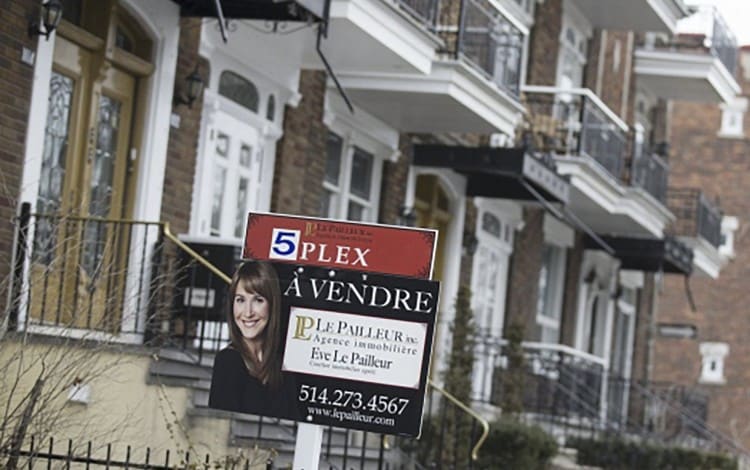
No doubt about it: The cost of a down payment on a home has accelerated in recent years, and that’s forcing homebuyers to take some nontraditional steps to meet their home-purchasing needs.
A case in point:
The cost of a down payment on a home rose significantly from 2008 (at the end of the Great Recession) to 2019 (at the cusp of pandemic-related lockdowns early in 2020).
After mid-2020, these down payments skyrocketed, according to data from CoreLogic.
“In May 2022, U.S. homebuyers offered record-high down payments for homes in all price tiers,” CoreLogic economist Archana Pradhan says. “The year-over-year rise in average down payment sizes was highest for middle-tier homes (19%), followed by low-tier homes (15%) and then high-tier homes (13%).”
These translate into more cash out of pocket for homeowners, many of whom are already frustrated by sharply higher home prices.
“Home prices play a significant part in the size of down payments, and with increases in home prices over the last few years, average down payments have followed suit,” Pradhan stated.
The average down payment for a low-tier starter home rose to $30,186 in June 2022 from $26,314 in 2021, Core Logic reported. At the higher end of the housing market, down payments rose to $152,000 from $134,535 in the same period.
401(k) to the Homebuying Rescue?
Given that the current median home price stands at $454,000, according to the St. Louis Federal Reserve, new homebuyers may find themselves between a rock and a hard place when it comes to pulling a decent down payment together.
That’s where some experts say a 401(k) plan can help -- if it is used astutely.
“Since 401(k) funds are for retirement it’s generally advisable not to use a 401(k) plan for anything else,” said LourdMurray senior wealth adviser Rick Nott. “That said, real estate markets in many areas may make it unrealistic to both max out retirement and save for a down payment.”
A first-time homebuyer who’s just getting started in real estate will need the most help buying -- this is the only situation where leveraging 401(k) funds makes sense.
“There are many ways to tap a 401(k) for a home purchase and generally fall into two categories, a 401(k) loan or a 401(k) withdrawal,” Nott told TheStreet. “I prefer the loan option because it saves you the most flexibility.”
Other financial experts agree, noting that 401(k) loans have substantial advantages over 401(k) withdrawals.
“If you really need to tap into your 401(k) to buy a house, it's preferable to use a 401(k) loan instead of a 401(k) withdrawal,” said Oak View Law Group attorney Lyle Solomon.
“That’s because a 401(k) loan has significantly lower costs than a 401(k) withdrawal. A 401(k) loan will not lower your credit score since it's not reported to the credit bureaus. Also, your chances of qualifying for a mortgage won't be harmed.”
For homebuyers looking for a 401(k) loan, your best bet is to work with your human resources contact and your 401(k) plan sponsor to get the loan paperwork going. Note that you can take a 401(k) loan valued at as much as 50% of your fund balance, or a maximum $50,000.
Pros and Cons
There are upsides and downsides to using 401(k) funds to purchase a home, and homebuyers leaning in the 401(k) direction should be aware of them.
“For starters, the 401(k) loan is not taxable and the interest is paid back to yourself,” LourdMurray's Nott said. “Best of all, if used for a home purchase, it can be paid back over 10 years instead of the normal five for nonhome-use loans.”
Another “pro” is that you can access your loan funds quickly. “Plus, there’s no need for a credit check or submitting paperwork for approval,” Solomon said.
On the downside, a 401(k) loan has some “major considerations” attached, Nott said.
“The first is the interest you pay on a 401(k) loan,” he noted. “While it’s owed and repaid paid to yourself, the interest is effectively taxed two times. It’s taxed once when you pay it through salary and it’s taxed again when you withdraw the interest in retirement.”
Another “con” is tied to job security.
“Most plans require the loan to be repaid in full if you leave,” Nott said. “Any remaining balance may be treated as a taxable distribution. This could be devastating if not handled properly. Given the extended timeline for a home-purchase loan, this is a real consideration for most.”
Another downer: 401(k) loans can come with higher interest payments than you may think. “With a 401(k) loan, the interest rates are higher than the prime rate, usually by a point or two, Solomon added.
With interest rates at around 7% in November 2022, that means your 401(k) loan rate could climb to 8% or 9%.
Money managers don’t usually recommend using 401(k) funds to buy a home as a viable option, but under certain situations, it can be feasible to use your 401(k) contributions to buy a house,
“Remember, you can tap into your 401(k) only when you’re putting it for your first home, and if you are having trouble gathering funds from other options,” Solomon noted.
“Even if you pay any fund-related cash penalty, it’s a good option if buying the house will save you a lot of money by eliminating your rent payments.”







